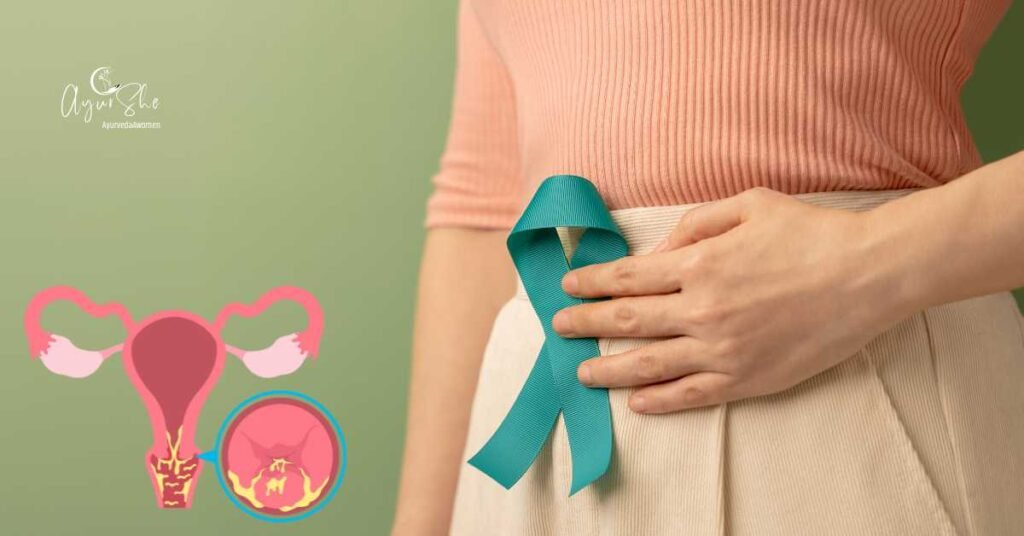Introduction
Uterine cancer, also known as endometrial cancer, is a type of cancer that affects the lining of the uterus. It is the most common type of cancer that occurs in the female reproductive system. In this blog post, we will explore the causes, signs, symptoms, diagnosis, and Ayurvedic treatment options for uterine cancer.
Causes
The exact cause of uterine cancer is unknown, but certain risk factors have been identified. These include:
- Age: Uterine cancer is more common in women who are postmenopausal.
- Obesity: Being overweight or obese increases the risk of uterine cancer.
- Hormonal imbalance: An excess of estrogen or a lack of progesterone can increase the risk.
- Family history: Having a close relative with uterine or colorectal cancer may increase the risk.
- Diabetes: Women with diabetes have a higher risk of developing uterine cancer.
Signs and Symptoms
Uterine cancer may present with the following signs and symptoms:
- Abnormal vaginal bleeding, such as bleeding between periods or after menopause.
- Pelvic pain or discomfort.
- Pain during sexual intercourse.
- Unexplained weight loss.
It is important to note that these symptoms can be caused by other conditions as well, so it is essential to consult a healthcare professional for an accurate diagnosis.
Diagnosis
If uterine cancer is suspected, a healthcare professional may perform the following diagnostic tests:
- Transvaginal ultrasound: This imaging test uses sound waves to create images of the uterus.
- Endometrial biopsy: A small sample of tissue is taken from the lining of the uterus and examined under a microscope.
- Dilation and curettage (D&C): A procedure in which the cervix is dilated, and a sample of tissue is removed from the uterus.
- Magnetic Resonance Imaging (MRI) or Computed Tomography (CT) scan: These imaging tests may be done to determine the extent of the cancer.
Ayurvedic Treatment
Ayurveda, the ancient Indian system of medicine, offers holistic treatment options for uterine cancer. These treatments aim to restore balance and harmony in the body. Some Ayurvedic treatments that may be beneficial for uterine cancer patients include:
- Herbal remedies: Certain herbs, such as Ashwagandha, Turmeric, and Triphala, have been traditionally used in Ayurveda to support overall health and strengthen the immune system.
- Dietary changes: Ayurvedic practitioners may recommend specific dietary modifications to support the body’s natural healing processes. This may include consuming a variety of fresh fruits and vegetables, whole grains, and avoiding processed foods.
- Lifestyle modifications: Practicing stress-management techniques, getting regular exercise, and maintaining a healthy weight are important aspects of Ayurvedic treatment for uterine cancer.
- Panchakarma therapy: This Ayurvedic detoxification treatment may be recommended to remove toxins from the body and promote overall well-being.
It is crucial to consult with a qualified Ayurvedic practitioner before starting any Ayurvedic treatment for uterine cancer. They will assess your individual condition and provide personalized recommendations.
Conclusion
Uterine cancer is a significant health concern for women, but early detection and proper treatment can improve outcomes. Understanding the causes, signs, symptoms, and diagnostic procedures for uterine cancer is vital in seeking timely medical intervention. Ayurveda offers a holistic approach to support the body’s healing processes and may complement conventional treatments. If you suspect any symptoms or have concerns about uterine cancer, it is essential to consult with a healthcare professional for an accurate diagnosis and appropriate treatment plan.




